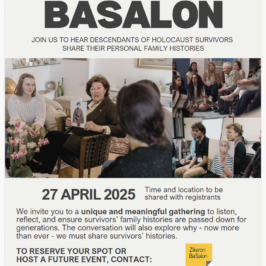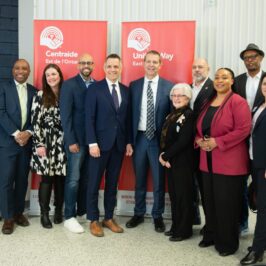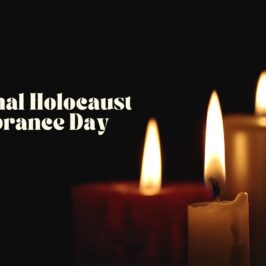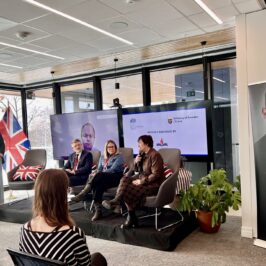By Marion Silver
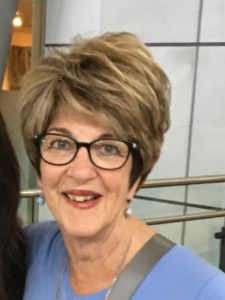
In April 2001, Liberation75 and the Ontario Anti-Racism Directorate, a Government of Ontario initiative, conducted Student Education Days that focused on students’ knowledge (or the lack) on the Holocaust and antisemitism. The objective was to assess what teens know and think about the Holocaust and antisemitism and how this varies across demographic populations. Four key areas of investigation were: Who is a Jew? Thoughts and Experiences with Antisemitism; Knowledge about the Holocaust; and Thoughts about the Holocaust (whether it actually happened, its extent, and could it happen again).
A pre-program survey supported the teachers’ belief that their students had little-to-moderate pre-existing knowledge of the Holocaust.
Approximately 13,500 students from Grades 6 through 12 attended from across Canada, the United States, and from select international locations. Liberation75 hosted 40 sessions about the Holocaust and antisemitism and provided multiple opportunities for students to engage directly with Holocaust survivors.
The Pre-Program survey found that 80% of the students had heard about the Holocaust. While most could identify Jews as a target, less than half identified other victims of Nazi violence such as Jehovah’s Witnesses, communists, and trade unionists. In response to media headlines from 2018 that young people know nothing about Auschwitz, 65% of these students knew Auschwitz was a Nazi concentration, labour, and/or death camp. In the Post-Program survey, this number increased to 76%.
Many agreed that the Holocaust happened and that the number of Jews who died in it has been fairly described. However, 32.90% reported feeling that the Holocaust was an exaggerated or fabricated event or were not sure it actually happened.
Most respondents to the Post-Program Survey knew that antisemitism is the hatred of Jewish people just because they are Jews. Asked to share whether they ever saw or heard something that they believed to be antisemitic, such as graffiti, slurs, bullying, property damage, or news stories, 42% stated that they had observed something of this nature, and 27% expressed uncertainty. Some suggested that antisemitic incidents occurred frequently, others that they occurred occasionally, and some that antisemitic acts occurred rarely or never.
The survey compared knowledge and attitudes about the Holocaust and antisemitism between students in Florida, where Holocaust education is mandated, and those in Ontario where Holocaust education is discretionary. On believing that Jews experience antisemitism in the place where they live, Florida students responded, ‘a lot’, which is 17% more often than Ontario students. Florida students were also less likely than Ontario students to state that antisemitism occurs rarely and never. Florida students were less likely to express questioning or denial than Ontario students and were more likely to state that the Holocaust could happen again and less likely to state that it could not.
Overall, these findings suggest that students benefit from Holocaust literacy. Not only does learning about the Holocaust improve understanding of the history of discrimination and violence in the 20th century, but it seems to correspond with an increased likelihood that students will take necessary action to protect minority communities when confronted with hatred or intolerance, especially when that learning is implemented during one’s formative youth. Knowledgeable students will become better citizens by being more likely to prevent antisemitism, bullying, discrimination, and other intergroup conflicts at early, nonviolent stage.

